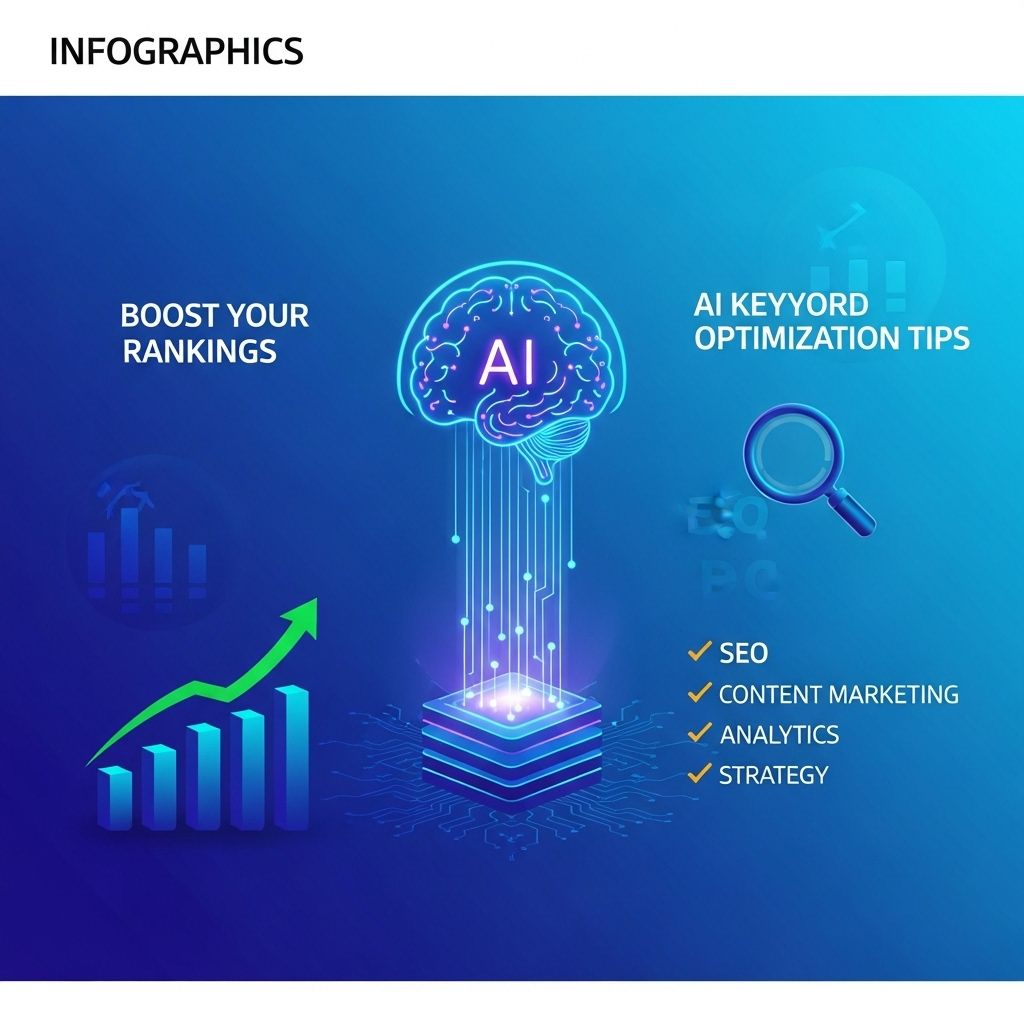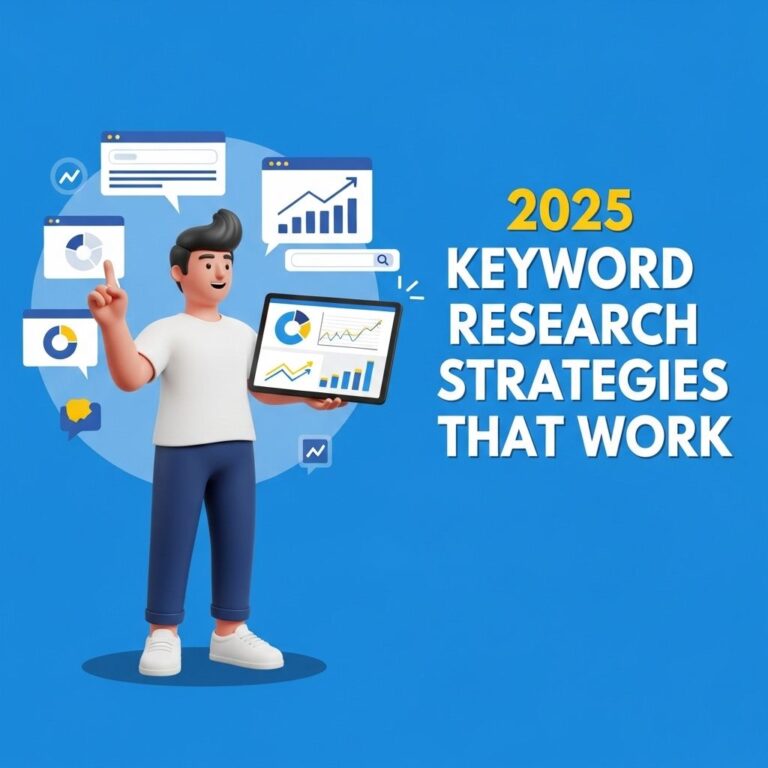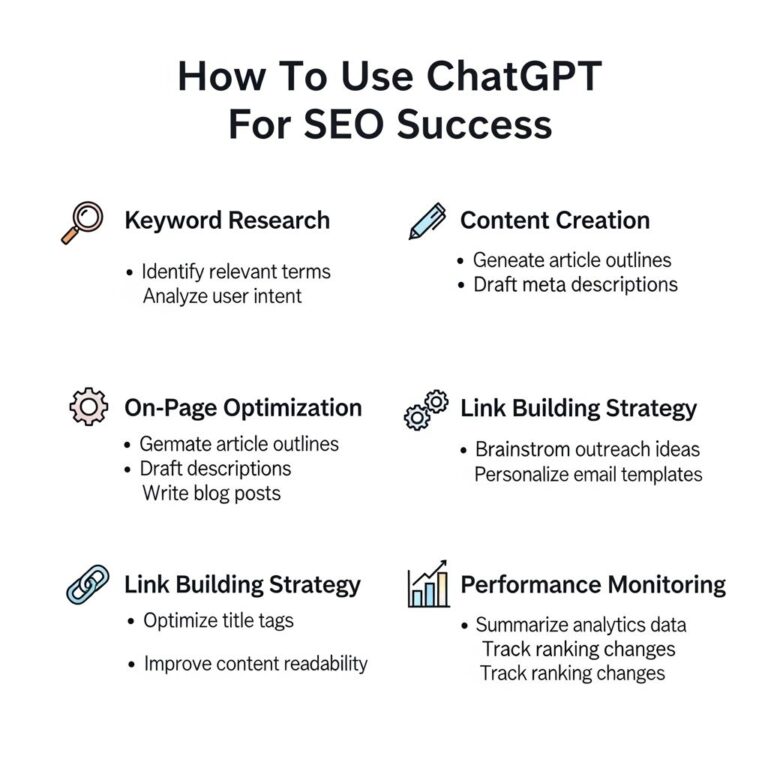In the ever-evolving landscape of digital marketing, search engine optimization (SEO) remains a cornerstone for businesses striving to enhance their online presence. With the advent of artificial intelligence (AI), the way we approach keyword optimization has transformed significantly. This article delves into effective AI-driven strategies to boost your rankings, laying the groundwork for a more strategic and data-informed approach to keyword optimization.
Table of Contents
Understanding the Role of AI in SEO
AI has revolutionized the way we understand user intent and search behavior. By leveraging advanced algorithms and machine learning, marketers can analyze vast datasets to discover trends and patterns that inform keyword strategies. AI technologies help in:
- Predicting Trends: By analyzing historical data, AI can forecast upcoming trends in search behavior.
- Enhancing User Experience: AI tools can assess user engagement metrics to refine keyword strategies based on what resonates with audiences.
- Automating Tasks: Automate tedious SEO tasks, allowing marketers to focus on strategy and creativity.
Identifying High-Value Keywords
Choosing the right keywords is foundational to successful SEO. AI tools can streamline this process significantly. Here are steps to identifying high-value keywords:
1. Utilize AI-Powered Keyword Research Tools
Several AI-driven tools can help you unearth keywords that your competitors may overlook. Tools such as SEMrush, Ahrefs, and Google’s Keyword Planner provide insights into:
- Search Volume: How often a keyword is searched.
- Keyword Difficulty: The level of competition for that keyword.
- Related Keywords: Suggestions based on your primary keyword.
2. Analyze Competitor Keywords
Understanding what keywords your competitors rank for can provide valuable insights. AI tools can help you:
- Identify gaps in your keyword strategy.
- Assess the effectiveness of your competitors’ content.
- Find opportunities to create unique, targeted content.
Leveraging Natural Language Processing (NLP)
NLP is a branch of AI that focuses on the interaction between computers and humans using natural language. Implementing NLP in your keyword strategy can improve the alignment between your content and user queries. Here’s how:
1. Semantic Search Optimization
Search engines like Google increasingly rely on semantic search to deliver relevant results. Ensure your content includes:
- Synonyms and Related Terms: This helps capture different variations of a query.
- Long-Tail Keywords: More specific phrases tend to have less competition and higher conversion rates.
2. Content Contextualization
Use AI-driven tools to analyze the context of your keywords. Tools like Clearscope and SurferSEO can help you:
- Understand how to structure your content for better alignment with search intent.
- Optimize your content length and depth based on top-performing pages.
Creating High-Quality, AI-Optimized Content
Once you’ve identified high-value keywords, the next step is creating content that incorporates these keywords effectively. Here are best practices for developing AI-optimized content:
1. Generate Content Ideas with AI
AI tools can assist in brainstorming content topics that resonate with your audience. Consider using:
- BuzzSumo for trending topics in your niche.
- AnswerThePublic for questions and phrases people are searching for.
2. Crafting Engaging Content
Engaging content not only boosts rankings but also enhances user retention. Focus on:
- Storytelling: Narratives can create a connection with the reader.
- Visuals: Incorporate images, videos, and infographics to break up text and enhance understanding.
3. Implementing On-Page SEO Best Practices
Every piece of content should follow on-page SEO best practices to ensure it is discoverable by search engines. Key elements include:
| Element | Best Practice |
|---|---|
| Title Tag | Include the primary keyword and keep it under 60 characters. |
| Meta Description | Write a compelling description with the primary keyword, ideally under 160 characters. |
| Header Tags | Use H1 for titles and H2/H3 for subheadings to improve readability. |
| Internal Linking | Link to other relevant pages to improve navigation and SEO value. |
| Image Alt Text | Describe images using relevant keywords for accessibility and SEO. |
Monitoring and Adjusting Your Keyword Strategy
SEO is not a set-it-and-forget-it endeavor. Continuous monitoring is crucial to maintaining and improving your rankings. Here’s how to effectively monitor your keyword strategy:
1. Track Keyword Performance
Use tools like Google Analytics and Google Search Console to track how keywords are performing. Look for:
- Changes in search positions.
- Click-through rates (CTR).
- Conversion rates from organic traffic.
2. A/B Testing
Experiment with different approaches by A/B testing various aspects of your content, such as:
- Headlines and titles.
- Call-to-action placements.
- Content formats (video vs. text).
3. Stay Updated on Algorithm Changes
Search engine algorithms are constantly evolving. Keeping up-to-date with these changes is essential to adapt your strategy. Follow industry blogs and forums, such as Moz, Search Engine Land, or Neil Patel’s blog to stay informed.
Conclusion
AI keyword optimization is an indispensable strategy in the modern SEO landscape. By understanding the role of AI in keyword research, content creation, and performance monitoring, you’re better positioned to boost your rankings and achieve greater online visibility. Embrace these AI-driven techniques to stay competitive in the digital marketplace, ensuring your content not only ranks but also resonates with your audience.
FAQ
What is AI keyword optimization?
AI keyword optimization involves using artificial intelligence tools and algorithms to analyze and identify the best keywords for your content, improving your search engine rankings.
How can AI help improve my website’s SEO?
AI can analyze large sets of data to find trending keywords, optimize content structure, suggest improvements, and personalize user experiences, all of which contribute to better SEO.
What tools are available for AI keyword optimization?
There are several tools available for AI keyword optimization, including SEMrush, Ahrefs, Moz, and Google’s Keyword Planner, which leverage AI to provide keyword suggestions and insights.
How do I choose the right keywords for my content?
Choosing the right keywords involves researching search volume, competition, and relevance to your audience. AI tools can assist by providing data-driven recommendations.
Can AI improve my content marketing strategy?
Yes, AI can enhance your content marketing strategy by identifying high-performing keywords, suggesting topics, and analyzing audience engagement to tailor content effectively.
Is keyword density still important for SEO?
While keyword density used to be a significant factor, modern SEO focuses on content quality and relevance. Using keywords naturally within your content is now more effective.









